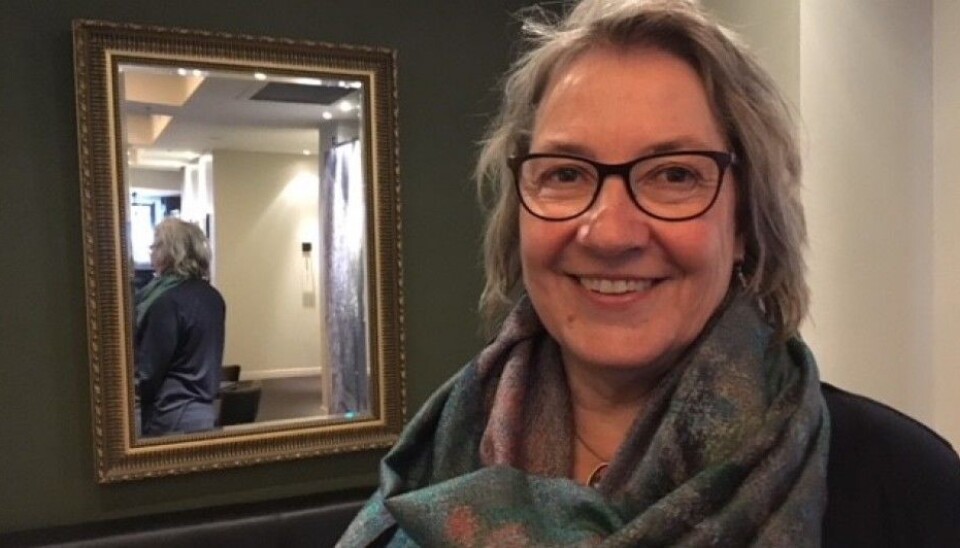
More than just hot flashes — menopause has its positive side
Only one in three women has problems during menopause, when women’s oestrogen levels plummet and menstruation stops. One Danish physician says many women experience this as a positive time in their lives.
Nearly three decades ago, the Danish physician and researcher Lotte Hvas noticed that almost everything that was said about menopause was very loaded and negative.
“Here I was, a GP, and was so surprised over how few problems women had with menopause, in spite of all the menopause clinics that had begun to pop up everywhere,” she said.
Something wasn’t quite right, she thought. She decided she would look into the issue. Was it true that there was absolutely nothing good about menopause?
In the grip of hormones
Hvas began her research at the end of the 1990s, right when hormone replacement therapy was gaining in popularity. This was about the time that the idea took hold, particularly in the United States, that hormones could save women from the ravages of ageing.
"Around the millennium there was a lot of focus on how terrible hormone loss was for women,” Hvas said. “We women were at the mercy of our hormones and doctors could save us. The pharmaceutical industry came up with the solution — taking hormone pills so a woman could forever look young and pretty.”
Hvas sent a questionnaire to more than 1000 Danish women who were aged 51 or older. But instead of focusing only on problems, Hvas asked questions about whether they had good things to say about menopause.
The answers she received surprised her. Many people said that menopause was not a crisis, and a number described positive aspects of this phase of life.
Only one in three has problems
The negative effects of menopause vary greatly from woman to woman, says Hvas.
As many as one-third of women say that they have almost no symptoms. Another third occasionally experiences problems such as hot flashes. The remaining third has troublesome symptoms like heavy night sweats and sleep problems.
Hvas wrote an academic article based on the answers she received from her first survey. But the women had written so many comments about their experiences that Hvas was inspired to find out more. She subsequently interviewed 24 of the women.
Although Hvas never dreamed of becoming a researcher, her surveys eventually ended in a doctorate, completed while she was still working part-time as a general practitioner.
No more worries about white pants
Menopause, these women said, was a period of great freedom, a period where self-knowledge and self-esteem blossomed. A few of these pleasures were simple: some women described how they delighted that they could stop worrying about wearing white pants.
"They feel as if they are doing with being ‘a good girl’, and that they finally have time for themselves and their own interests," says Hvas.
Or as one of the women told Hvas, "My husband says I may be hysterical, but I've definitely gotten better at saying what I really mean.”
Not opposed to hormone therapy
Hvas is critical of the medicalization of what is a normal phase of life. She has previously written about the scientific advantages and disadvantages of hormone treatment.
"I was against the mantra that menopause is a disease that has to be treated with drugs," she says. But she believes it can be appropriate for women to take hormones for a period if they need them.
Hvas says she is not opposed to hormone replace therapy. Instead, she says, women should weigh the benefits and risks of its side effects, just like any other medicine. She also points out that the risk of deadly side effects from taking hormones is low.
Nevertheless, "many women reject their doctor's suggestion that they take hormones, saying that a glass of wine does as much good,” she said.
Worst in Western cultures?
When Hvas worked on her popular science book on menopause, she also studied research results from other countries.
There are big differences between cultures as to the type and severity of menopause symptoms that women have, in part based on what is happening in women’s lives overall.
Especially in the United States, women with children may experience what is called the “empty-nest syndrome” at this time in their lives, after their children have grown and moved away.
"In the United States, some women give up their careers when they have children, and devote themselves to their kids and their after-school activities for years. They experience an emotional let-down when their children move out and they feel that no one needs them," says Hvas.
Scandinavian women are lucky in that they are allowed to be themselves at this stage of their lives, she says.
"Most women in Scandinavia actually see that they might enjoy entering this phase of life,” she says.
Reference:
Lotte Hvas: Overgangsalderen Alt du trenger å vite (Menopause: All you need to know). Font forlag, 2018.
-------------------------------------





